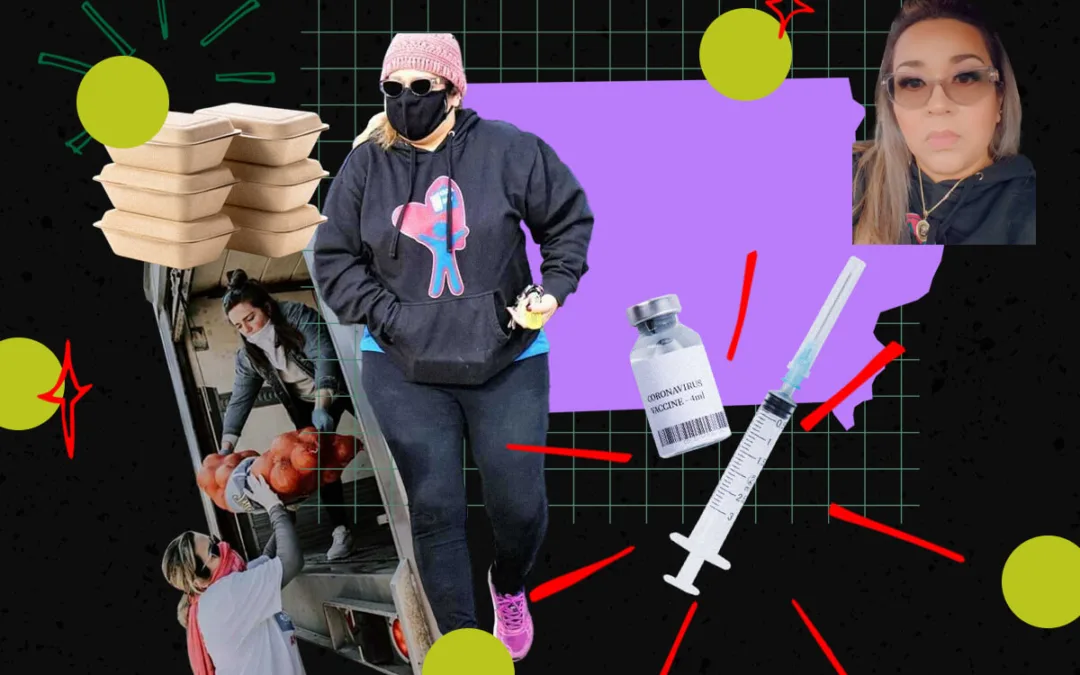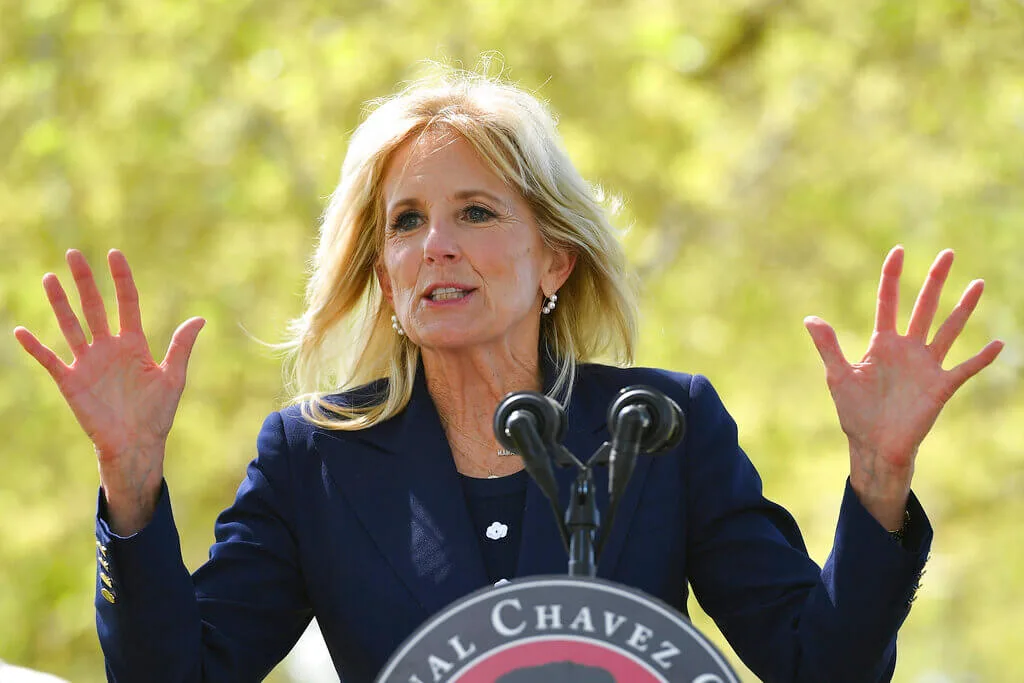
Democratic lawmaker Padma Kuppa of Troy wants to bolster paid sick leave in Michigan. Photo via Padma Kuppa's website.
If this Michigan lawmaker had her way, paid sick leave would have already been a thing. Before the coronavirus. Despite Republicans preventing it.
LANSING, MICHIGAN — One major response to the new coronavirus might have already been law, but Michigan Republicans prevented it.
After COVID-19 (a novel coronavirus) hit Michigan last week, the state started work on a number of measures to slow the spread of the disease. Some legislators have also sought to help those out of work due to the pandemic’s widespread disruption of the economy. One effort, introduced by Democratic lawmaker Padma Kuppa of Troy, would help Michigan workers going unpaid during the pandemic.
Kuppa’s proposal, House Bill 5628, would give Michigan workers one hour of paid sick leave for every 30 hours worked. It also would raise the cap of paid sick leave hours to employees of large businesses.
“Paid sick time is critical for working families across Michigan, especially with COVID-19 on our doorstep,” Kuppa said. “Without the ability for our workers to stay home when they are sick, it can become a health concern for us all. The spread of this virus once again reinforces our need for immediate action on this issue.”
Why Don’t We Already Have This Law
If Kuppa’s proposal sounds familiar, that’s because it was slated to be on the ballot in 2018. In the run-up to the 2018 election, two proposals were set to appear on the ballot: One Fair Wage which aimed to raise the minimum wage and Time to Care which aimed to give Michiganders the exact paidsick leave policy Kuppa proposes.
Instead of allowing it to reach ballots, the Michigan Legislature adopted the proposals as law, preventing voters from being able to vote on them, and then radically altered the bills after the election. Nearly 1.7 million workers lost paid sick leave from this action during an infamous lame-duck session Secretary of State Jocelyn Bensen called an “end-run around democracy.”
“Every voter in the state of Michigan should be outraged, because if any of these things go through, it creates a dangerous precedent,” Bensen told WJR at the time. “What’s happening right now in the 11th hour is a complete eradication of the voters’ power.”
But the adopt-and-amend strategy used against Time for Care and One Fair Wage was particularly egregious. The Michigan Supreme Court did little to quell the controversy when it declined to rule on whether or not the strategy was constitutional, leaving the legality of the tactic at best ambiguous. Amid all it’s controversy, no one at the time could know how paid sick leave would be missed during the current crisis.
That can’t be said at the national level. Courier reports nationwide 32 million workers lack paid sick leave. Efforts to expand paid sick leave in response to the crisis have been blocked, and even workers entitled to that leave may face retaliation for using it.
That leave, however, is essential to responding to a pandemic.
How Paid Sick Leave Helps a Pandemic
During any pandemic, Americans are all-too-often faced with a problem – lose money or work sick. Those with paid sick leave, which is presently capped at 40 hours, were able to take one week of full-time labor off after the pandemic began. They are not a majority of Michiganders.
“If I take any time off, I don’t get paid for it,” McDonald’s employee Aimee Wech told Michigan Advance. “I do worry I could get it from people who come through the drive-through who don’t even know they’re carrying it … But I’ve got an 8-year-old child at home. I couldn’t take time off even if I wanted to.”
The choice Welch has to make, between feeding her family and risking exposure, is a common concern during pandemics.
According to census data, around 40% of Michigan workers work at businesses with fifty employees or less, Those businesses are exempt from current paid sick leave law. Also exempt are certain kinds of employees of larger businesses. The total of those without paid sick leave is estimated at 55%.
A national analysis by the U.S. Department of Labor Statistics shows that overall, it is highly-paid workers who have access to paid sick leave, and low-paid workers face the kind of choice Welch described.
“It’s even more clear that if you feel sick you don’t go to work,” Washtenaw County deputy health officer Ruth Kraut told Bridge. “But that’s a conflict with the fact some people don’t have sick time. ‘How do I pay for my food or my rent or my heat?’ This is really difficult for a lot of people.”
Going to work sick accounted for an estimated 7 million cases of the H1N1 bird flu according to a briefing by the Institute for Women’s Policy Research from 2010.
And one of the most important tools during a pandemic, like the current coronavirus, is a tactic called ‘social distancing’. Social distancing, or limiting in-person interactions with others to avoid potential spread of a virus, is a major component of slowing the progress of a pandemic, called ‘flattening the curve’ in epidemiological circles.
Or as Governor Gretchen Whitmer put it when declaring a state of emergency, the main goal is to slow the spread of the virus.
Easing the Pinch
Even if a Michigander has their full 40 hours of paid sick leave and began using them when the first case entered the state, the time they are compensated for has come and gone. And with mandatory closures of events, schools and other places of business, it isn’t just those practicing social distancing that are feeling the pressure the coronavirus has put on the economy.
The pandemic has made strange bedfellows in Washington. What was months ago the novel policy prescription of unlikely Democratic Presidential contender Andrew Yang now has the support of both Congresswoman Alexandria Ocasio-Cortez (D-New York) and Senator Mitt Romney (R-Utah). That policy is basic income.
Washington has been working on legislation like Kuppa’s, though the House rolled back their proposal Tuesday in response to Republican baulking. This leaves a path for the emergency basic income Ocasio-Cortez and Romney propose to cover the areas The Families First Coronavirus Response Act leaves untended.
That income, what The New Republic calls “the Social Distancing Wage” would help alleviate the strain on Michigan families who either fear spreading the coronavirus to their coworkers or whose place of business simply is not operating during this crisis.
The same people Michigan Republicans left behind in 2018, and who now rely on legislation like Kuppa’s.
Politics

Teamsters and UPS Reach Tentative Deal to Avoid Strike, 340,000 Workers to Get Raises
The tentative deal represents a huge win for full- and part-time UPS Teamster workers, who would get significant pay raises and better working...



One Republican Senator Is Blocking 265 Military Promotions, Leaving the Marines Without a Confirmed Leader
Sen. Tommy Tuberville's decision means these military officers are not getting the pay raises they’re owed, cannot move their families to wherever...
Local News



Teamsters and UPS Reach Tentative Deal to Avoid Strike, 340,000 Workers to Get Raises
The tentative deal represents a huge win for full- and part-time UPS Teamster workers, who would get significant pay raises and better working...



One Republican Senator Is Blocking 265 Military Promotions, Leaving the Marines Without a Confirmed Leader
Sen. Tommy Tuberville's decision means these military officers are not getting the pay raises they’re owed, cannot move their families to wherever...




